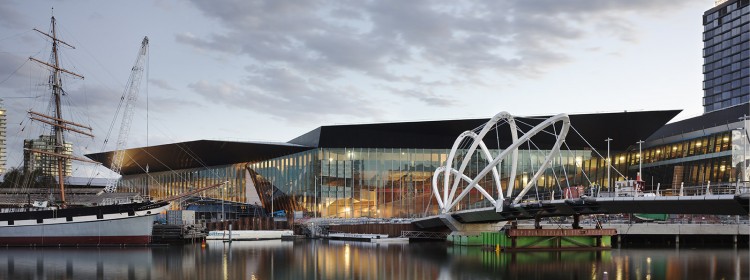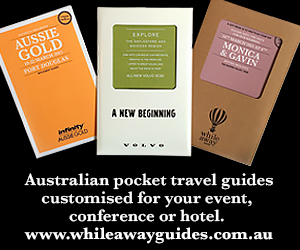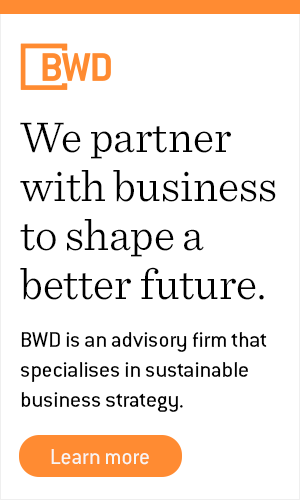The CEO of the Melbourne Convention Bureau is well-known in her field for a variety of reasons, not least her knowledge and experience and pleasant, good-humoured approach to doing business. In this interview with The Siteseer, Karen Bolinger shares views and advice on the industry, the world, Australia, Melbourne, the Chinese market, CSR and much else.
Siteseer: What are some of the big issues facing your business?
Karen Bolinger: The world is changing, as is the speed with which we’re doing business. I’ve been in this industry for some time and it’s much more competitive than it ever was, especially in the Asia-Pacific region. There are a variety of reasons for this. New infrastructure is being built and governments are investing more in the industry. It really is the pillar of many economies now.
The state of the global economy is always a concern of course, as is the terrorism threat.
The Asian region is in a rotation pattern for international association business and if I think about who we compete with, I realise just how aggressive it’s all become. Singapore has a long-established convention centre and brand. So has Seoul, which is very aggressive. Kuala Lumpur and Thailand have invested heavily in infrastructure recent years. China will continue to do so of course, and I don’t think we can forget India. Also, in my view, in the next ten years you’ll see more African competition.
An interesting trend is local participation. Buyers and decision-makers, particularly for association conferences, are seeking interaction and participation in the destinations they take their conferences to. That’s their give-back if you like. They want to make sure they’re helping local people get educated from the entry level up, to look after the local communities. They’re often seeking to do it in Africa and certainly the Asian region. It’s about leaving a legacy behind for the future.
 What does it all mean? It means we must really keep in mind the associations’ objectives and adapt our offering to be in line with their outcomes. Australia is an advanced business event destination in many respects and we are well positioned and competitive, in many ways, to deliver on this.
What does it all mean? It means we must really keep in mind the associations’ objectives and adapt our offering to be in line with their outcomes. Australia is an advanced business event destination in many respects and we are well positioned and competitive, in many ways, to deliver on this.
SS: Are you happy with the levels of support your industry gets?
KB: I always think it could be improved. I sit on the Business Events Council of Australia board which is a collective of the key business event bodies in Australia and a lot of what we do is lobbying and profiling the value of this sector at a federal level, and demonstrating the value that business events deliver to the economy. It’s not just about hotels and the tourism products that do well out of it. It’s the networking, knowledge-exchange and the trade and investment linked to our business that’s critically important. We must make sure we get federal support, and then at a state level we must tap into that support further.
A big challenge is gaining more widespread recognition and understanding of the value of the industry – and the trade and investment it represents that reaches well beyond tourism. We’re working towards a broad set of principles to raise the profile of our sector further, and so it’s seen as a good investment by government.
Australia doesn’t do a particularly good job as far as that’s concerned. There’s a tendency here still to see business events as a tourism outcome, while we see it as related to economic development.
[Visitors] don’t just come because we’ve got hotels, they come because they’re going to a conference at which they can be educated and where they can network, collaborate and exchange ideas. That affects their reason for attendance far more than what we offer as a leisure destination.
And once organisations like ourselves can procure these events, and once people have arrived at our destination, we need to have the right assets in place to support them.
KB: So what do you believe successful operators will be doing differently in future?
SS: Really understanding customers and the customer journey. I don’t think you can keep rolling out the same thing all the time and expect to grow. Whether you’re a supplier or an operator, people are looking for a more personalised approach, and it involves many channels and modes of content management.
You have to keep thinking about your audience and what you’re actually saying to them. When I check into a hotel do I want the generic “Hi welcome back,” or do I want the “Welcome back Karen, I know you like English breakfast loose-leaf tea with a pot in your room because that’s your thing”? There’s a massive difference, and successful operators of the future will pick up on it.
It’s all most of us really want, to feel rewarded and cared for, and we’re prepared to go back for it. Technology enables this kind of service. You can get a lot of intel by looking at purchasing habits – to understand customers better, build a product, welcome people differently or create an event that’s better tailored.
SS: Do Australian venues represent value generally?
KB: Yes. Our model is different here obviously because of our wage and salary structures. But if you think about the quality of service, the food and beverage we provide and our standards in general, we do offer value.
 Organisers from different cultures are accustomed to different offerings and have diverse standards. When they come to a convention centre, North Americans, for example, expect to pay for a shell. When they come to Australia they buy security, chairs, basic AV and so on. It represents good value when you stack up the offerings.
Organisers from different cultures are accustomed to different offerings and have diverse standards. When they come to a convention centre, North Americans, for example, expect to pay for a shell. When they come to Australia they buy security, chairs, basic AV and so on. It represents good value when you stack up the offerings.
SS: What else makes Australia special?
KB: Its mystique. It’s an aspirational destination, and a lot of that is to do with our personality. Yes we have great landscapes, food and wine and wonderful experiences, but what people most often go away and talk about is the Australians and their friendliness. If you do business here, while you realise we’re fairly serious about business and operate in a respectful manner, you can see we don’t take ourselves too seriously.
For many years Australia has exported its event talent because we’ve had to work a little bit harder and we’ve been creative and innovative. As a result we’ve got highly skilled professionals in our business who have global experience. Melbourne does it particularly well.
SS: What’s Melbourne’s advantage compared with other centres?
KB: What we refer to as intellectual capital sets us apart, though other cities have started to say that too. Another factor is our collaborative approach. We don’t just say it, we demonstrate it in the way we behave; we bring the city together when we’re bidding, and when a conference [is underway].
The AIDS conference in 2014 [that brought 13,000 people to Melbourne] is a good example. We set up a Melbourne planning group beforehand and had all the key stakeholders at the table. Together we decided how to bring that event to life, because we understood that the objectives of the conference were to broaden awareness of AIDS and to get messages to a wide community, not just medical and scientific experts.
To that end we worked closely with the City of Melbourne and put on 60 cultural events for delegates while they were here. There were a ton of things going. I don’t believe this would have happened to the same degree in most other cities. We even had large signage up on bridges in the CBD. This can only happen if you bring everyone together, championing the same thing. Melbourne embraces that kind of collaboration.
SS: Has Melbourne benefited from the Sydney Convention Centre being out of action while it was rebuilt?
KB: No, we’ve been operating at capacity for quite some time. I’d think other cities, like Brisbane and Adelaide, might have benefited more.
SS: Looking to the future, do you see any significant domestic component to your business?
KB: We do some domestic conferences but it’s not the core. We’re not really into “double-handling” some of the business our suppliers would chase. Our task is to identify new opportunities that would never have come to Australia unless we’d bid for them actively.
SS: What can others learn from your experience?
KB: I’m not giving away all of our secrets! It’s about understanding your customer and listening to them, making sure your city’s connected with your decision making and not underestimating the power or value stakeholders can deliver for a successful event. Making use of everyone’s expertise.
 SS: The CSR issue: how well are you doing it, and where’s this trend heading?
SS: The CSR issue: how well are you doing it, and where’s this trend heading?
KB: We’re lucky in Melbourne to have the first convention centre in the world to be awarded a six-star, green star environmental rating. Beyond that, the city really does live and breathe CSR. We’ve won the world Ecocity conference [July 2017] and it would only have gone to a city that was leading the way.
In our bids we must demonstrate that we continue to embrace CSR, walk the talk and make improvements continually. It’s one of those evolving things. The younger generation, the millennials, are very much in tune with environmental issues because they’d like to inherit a world they want to pass on to their children. As they come up through the ranks they’ll increasingly influence and demand what’s right in this space.
SS: Chinese millennials seem to be equally concerned. How big an attraction is the mainland Chinese market for you?
KB: Much of our incentive business at the moment is coming out of China. It’s interesting to see how their purchasing has changed. It’s moved from the traditional big, controlled group idea to smaller groups, and many of them are demanding some kind of CSR component along with off-the-beaten-track, money-can’t-buy experiences. They’re travelling more, so they’re more experienced on a personal and business level. Incentive groups, especially, want a different experience from what they may have looked for ten or even five years ago.
For example direct sales companies have what they call their elite groups, high achievers. We had 70 Amway delegates in this category come to Melbourne. They took a day at the Grand Prix, where we hired a corporate suite for them. They inspected the cars and had a driver come to talk to them. Then they went on helicopter flights to the Great Ocean Road and had a lunch at a private estate in the Yarra Valley. As a general tourist you couldn’t buy that, and even if you did it would cost you an arm or a leg. They wanted those bragging rights.
The idea behind it of course is to let other people know they should sell more so they can also join the elite program. That’s why direct sales people in some countries are millionaires.
SS: How are you enjoying the job?
KB: Well I’m busy, that’s for sure. [Laughs] I love it because what we do is so diverse. Yesterday I was looking at a press release about a chemical congress we won which is very technical, then there’s an Amway Taiwan incentive program, and all kinds of other events. And I get to meet some of the world’s leaders in their fields which is pretty special.
Another thing I appreciate is what I refer to as the simple complexity of what we do. The idea of organising a conference may be simple, but the complexity of the network we have to build to secure it for the event to be a success is vast. That’s partly what floats my boat – the fact that nothing’s ever the same or cut and dried. Sometimes we’ll have four partners at the table, sometimes there’ll be 80.
And of course there’s the thrill of getting the big wins. We do like to win.
KAREN INSIGHTS
Karen Bolinger joined the Melbourne Convention Bureau as CEO in 2011, bringing more than 20 years’ experience to the role. She was previously General Manager of Strategy and Marketing at the Royal Agricultural Society of New South Wales (RAS). Before that she held positions at Staging Connections, the Sydney Convention and Visitors Bureau, Sheraton on the Park Sydney and Renaissance Sydney Hotel. She is Chair of the BestCities Global Alliance, and sits on the Board of the Association of Australian Convention Bureaux (AACB) and the Victorian Advisory Board for the Starlight Foundation.
www.melbournecb.com.au




